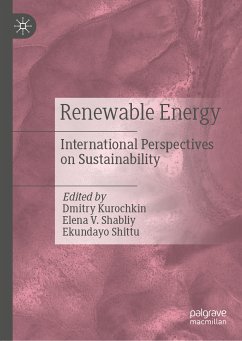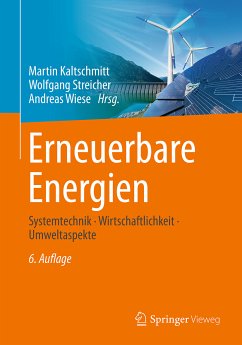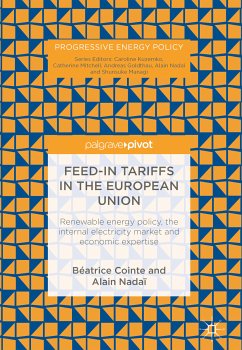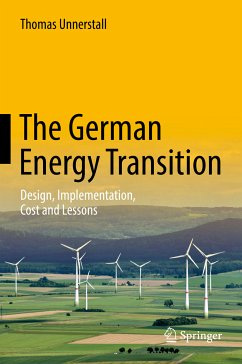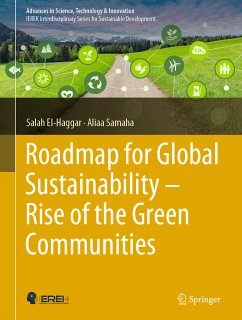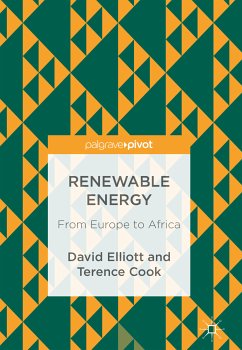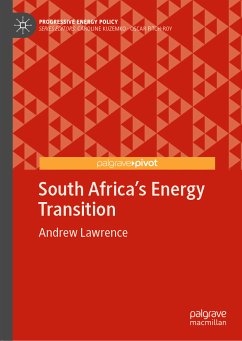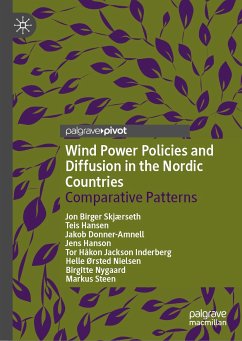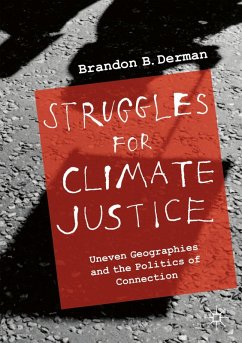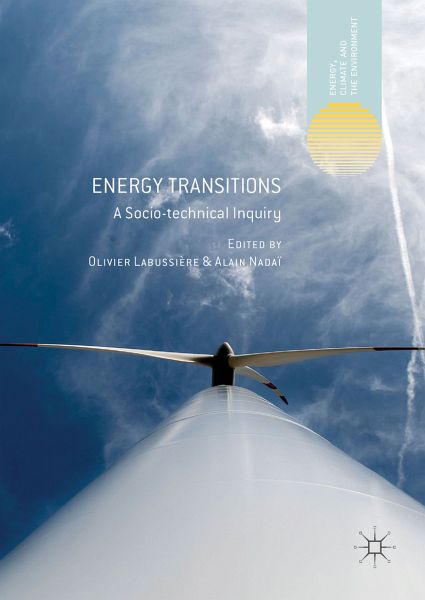
Energy Transitions (eBook, PDF)
A Socio-technical Inquiry
Redaktion: Labussière, Olivier; Nadaï, Alain
Versandkostenfrei!
Sofort per Download lieferbar
104,95 €
inkl. MwSt.
Weitere Ausgaben:

PAYBACK Punkte
52 °P sammeln!
This book elucidates what it means to transition to alternative sources of energy and discusses the potential for this energy transition to be a more democratic process. The book dynamically describes a recent sociotechnical study of a number of energy transitions occurring in several countries - France, Germany and Tunisia, and involving different energy technologies - including solar, on/off-shore wind, smart grids, biomass, low-energy buildings, and carbon capture and storage. Drawing on a pragmatist tradition of social inquiry, the authors examine the consequences of energy transition proc...
This book elucidates what it means to transition to alternative sources of energy and discusses the potential for this energy transition to be a more democratic process. The book dynamically describes a recent sociotechnical study of a number of energy transitions occurring in several countries - France, Germany and Tunisia, and involving different energy technologies - including solar, on/off-shore wind, smart grids, biomass, low-energy buildings, and carbon capture and storage. Drawing on a pragmatist tradition of social inquiry, the authors examine the consequences of energy transition processes for the actors and entities that are affected by them, as well as the spaces for political participation they offer. This critical inquiry is organised according to foundational categories that have defined the energy transition - 'renewable' energy resources, markets, economic instruments, technological demonstration, spatiality ('scale') and temporality ('horizon(s)'). Using a set ofselect case studies, this book systematically investigates the role these categories play in the current developments in energy transitions.
Dieser Download kann aus rechtlichen Gründen nur mit Rechnungsadresse in A, B, BG, CY, CZ, D, DK, EW, E, FIN, F, GR, HR, H, IRL, I, LT, L, LR, M, NL, PL, P, R, S, SLO, SK ausgeliefert werden.



